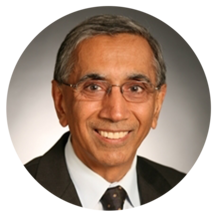About this Presentation
“High Reliability Organization” (HRO) is commonly used to describe organizations that avoid catastrophes in environments in which accidents might be expected. HRO describes a dynamic, interactive style of engagement that is effectively used in these situations and for operations in these environments. HRO is an effective way an organization can respond to crisis, chaos, and adversity. It gives leadership, management, and all levels of the organization a way of processing challenges and overcoming them as a single unit. HRO can help large teams adapt to potentially threatening and time-sensitive situations, where it can literally be a lifesaver in a chaotic environment. Leaders in various situations and industries—from nuclear power plants to US Navy aircraft carriers—have gained new insights into their organization’s performance through HRO for over 15 years. Its implementation in healthcare recently gained momentum with the Joint Commission’s endorsement of HRO as the Gold Standard in healthcare. Formed in 2008, Joint Commission Center for Transforming Healthcare is focused on transforming healthcare into “a high reliability industry by developing highly effective, durable solutions to healthcare’s most critical safety and quality problems in collaboration with healthcare organizations, by disseminating the solutions widely, and by facilitating their adoption.” HRO implementations of this center started in earnest in 2013. In addition, Secretary of Defense’s mandate to transform the Military Healthcare System (MHS) further grew HRO implementations, following a review of safety, access, and quality in 2014. This review stated that, “The foundation for improving performance in the MHS rests on combining the concepts of an integrated healthcare system with those of high reliability organizations.” Besides healthcare, High Reliability Organizing has been spreading to many industries including chemical process safety, communications, manufacturing, dams, defense industrial base, emergency services, energy, financial services, food and agriculture, government facilities, information technology, transportation systems, water and wastewater systems, railroads, school systems, wildland and urban firefighting. The HRO principles become counterintuitive in application or operation. In this presentation we will first describe the basics of HRO and the limits of logic and rationality in these environments. Then we will describe a different logic of operations developed from combined affective-cognitive thought to create a flexible and agile individual and organizational response and an adaptive program for growth and resilience with examples from healthcare and other high-risk industries. Subsequently, we will discuss, how TOC can assist in elevating organizations to become HROs. Specifically, applicability of buffer management techniques will be described for HRO implementations using TOC thinking processes framework: Why Change? What to Change? What to Change to? Video length: . PDF: slides.
What Will You Learn
To help you get the most value from this session, we’ve highlighted a few key points. These takeaways capture the main ideas and practical insights from the presentation, making it easier for you to review, reflect, and apply what you’ve learned.

High Reliability Organizations (HROs) aim to create zero harm in high-risk operations. They have processes and structures in place to prevent accidents.
The transition to becoming an HRO involves changing the culture of the organization from a blame culture to a preventive culture.
HROs are characterized by a preoccupation with failure, sensitivity to operations, reluctance to simplify, commitment to resilience, and deference to expertise.
Instructor(s)
Bahadir Inozu

Ms Alka Wadhwa
Alka Wadhwa is an experienced consultant and process improvement expert with over 24 years of expertise in the Theory of Constraints (TOC), Lean Six Sigma, and organizational performance optimization. She has successfully led projects in healthcare, financial services, and manufacturing, driving significant improvements such as a 67% boost in hospital operations and a 140% increase in outpatient visits.
Previously, Alka Wadhwa spent 17+ years at GE Global Research Center, where she led initiatives to enhance various GE businesses through advanced technologies, process redesign, and system optimization. Founder of Better Solutions Consulting, LLC, she specializes in using TOC, Six Sigma, and data analytics to streamline operations and build high-performance teams.
Her work has earned her multiple accolades, including the Empire State Award of Excellence in healthcare.

Dr Gary Wadhwa
Dr. Gary Wadhwa is a Board Certified Oral & Maxillofacial Surgeon with extensive experience in the field. He completed his Oral & Maxillofacial Surgery training at Montefiore Hospital, Albert Einstein College of Medicine in Bronx, NY, and has served as an Attending at prestigious institutions like St. Peters Hospitals, Ellis Hospital, and Beth Israel Hospital in NY. With a career spanning over two decades, he was the former CEO and President of a group specialty practice in NY from 1994 to 2015. Dr. Wadhwa holds an MBA from UT at Knoxville, TN, and has undergone additional training in System Dynamics at MIT, Health System Management at Harvard Business School, and Entrepreneurship and healthcare innovations at Columbia Business School. Committed to expanding access to Oral & Maxillofacial Surgery care, he is currently engaged in a meaningful project to provide healthcare services to underserved populations in inner city and rural areas through non-profit Community Health Centers.
